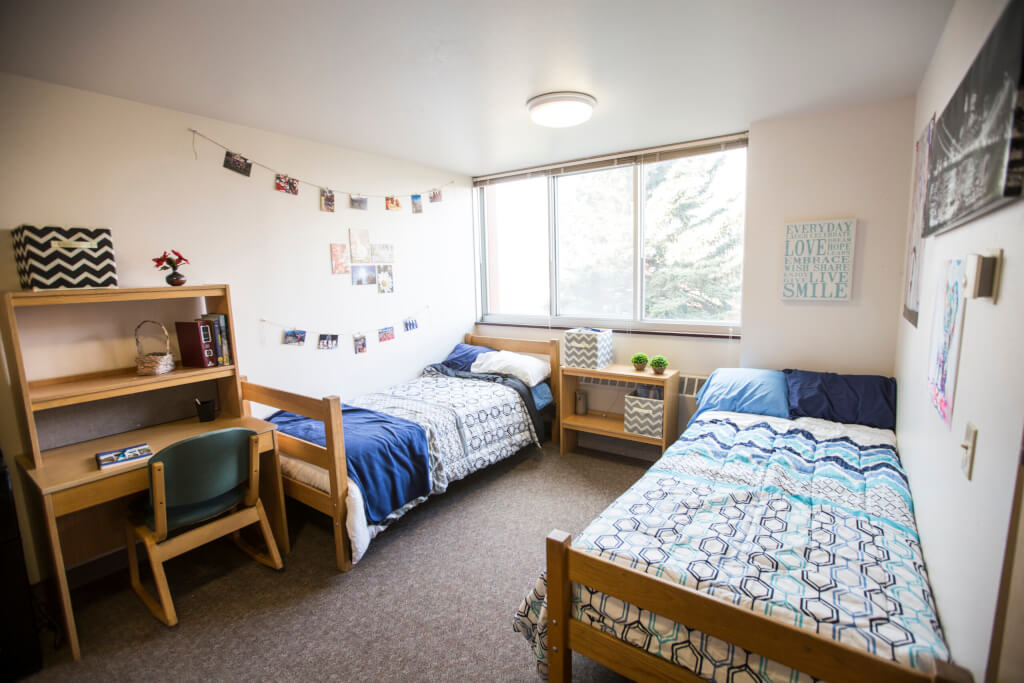Are you considering studying abroad? Then finding the best accommodation for international students that meets your needs is probably one of your top concerns.
After all, your accommodation while studying abroad can significantly impact your education, health, and general wellbeing. Remember, other than when you’re attending classes, where you live is where you’ll be spending most of your time. It’s the place where you’ll sleep, study, cook and eat your meals, and host your friends.
Amidst the frenzy of college admission preparations, visa application and interview, and travel planning, many international students postpone accommodation arrangements to the last minute. That’s nothing but a recipe for disaster!
Ideally, you should start looking into accommodation options as soon as you receive your admission letter. Your decision on student accommodation shouldn’t be a rushed one.
The importance of finding the right housing can’t be overemphasized. Having the right place to live can make your study abroad experience more fulfilling and enjoyable.
Fortunately, many colleges and universities have allotted slots for housing international students on-campus. You might also have the option of choosing other types of student accommodation.
Your choice of accommodation will be based on various factors including:
- Your budget
- The location
- Safety and convenience
Let’s explore different accommodation options for international students and guide you on choosing the best fit for your needs:
Option #1- University Housing for International Students
As we’ve mentioned, most universities and colleges provide housing for international students. Basically, international students have allotted slots in the university halls of residence or dormitories.
Having this option eliminates the hustle of hunting for accommodation in a foreign country. Neat, right?
University housing is the most popular accommodation for international students. It’s usually closest to the university (sometimes within campus), allows for more socialization with other students, and encourages involvement in campus activities. Even more importantly, university housing is usually one of the more affordable and safe accommodation options.
Unfortunately, in some campuses, university housing is allotted on a first-come-first-serve basis. If you don’t send in your application early, you run the risk of missing a slot.

Oxford student housing
Here’s a summary of the pros and cons of university housing for international students:
| Pros of University Housing | Cons of University Housing |
|
|
|
|
|
|
|
|
|
Option #2- Renting an Off-Campus Room/Apartment/House
Renting accommodation off-campus is another popular option among international students. Usually, the housing options near colleges and universities are designed with students’ needs in mind (including international students).
If you’re not allotted or choose not to go for university housing, ask the international student office about other housing options. They might be able to connect you with other students looking to either sublet their apartments or have a roommate. Subletting or having roommates will help you minimize your monthly spend on housing.
You might also find off-campus student housing through online resources. However, be wary of scammers. Consult with the international student office before signing a lease or making a payment.
Bear in mind that utility costs are often not included in the quoted rental fees. Double check your lease to make sure that you understand everything before signing the dotted line.
Here’s a summary of the pros and cons of renting off-campus housing:
| Pros of Renting Off-Campus | Cons of Renting Off-Campus |
|
|
|
|
|
|
|
|
|
|
Option #3- Local Homestays for International Students
How about living with a local family? Homestay accommodation is where you pay to live in the home of a host family, usually near your university campus. You are provided with a room in the family home and allowed to use communal facilities. In some cases, you’re also provided with meals.
Homestays are meant to be temporary – lasting anything from a few days to six months. They’re, therefore, ideal for international students taking short courses or participating in exchange programs.
Homestays can also come in handy in case you’re not able to find long-term accommodation in time. Living with a local family will give you time to settle down in your studies as you look for long-term accommodation.
The host family will also become part of your support structure as you adjust to a new environment. They can help you navigate the intricacies of a foreign culture, learn the local language, and minimize feelings of loneliness and homesickness.
Homestays are usually more affordable than renting off-campus housing. That said, homestay packages vary widely depending on location, facilities, and services offered. Homestays are often charged weekly, which you’re required to pay upfront.
Here’s a summary of the pros and cons of homestays for international students:
| Pros of Homestay Accommodation | Cons of Homestay Accommodation |
|
|
|
|
|
|
|
|
|
|
|
Tips for Finding Accommodation as an International Student
Now you have a deeper understanding of the most common accommodation options for international students. Probably, the next question on your mind is “How do I go about finding accommodation abroad?”
Here are some helpful tips:
Check with the International Student Office
The best place to start your search for accommodation is the international student office of your college or university. International student advisors are fully-equipped to guide you on the intricacies of finding accommodation abroad.
They’ll help you to either confirm your slot in the university housing or guide you on appropriate private accommodations.
Join the Right Social Media Groups
Many universities have groups on Facebook where you can interact with other students. These groups are a great resource for finding the best accommodation as an international student. Use them to find affordable rooms/apartments, roommates, and discuss housing challenges.
Take Advantage of Existing Networks
Do you have family or friends living close to the university campus? They can check out local listings to help you find the best accommodation more easily.
Your study abroad consultant might also be able to connect you with other students they’ve helped gain admission to your university. Usually, study abroad consultants also have an understanding of student accommodation in the countries they specialize in and existing networks they can tap into.
Check Local Listing Websites
In many countries abroad, you’ll be spoilt for choice on websites where vacant housing is listed. Find out the most popular and reputable websites for suitable listings.
Before sending any payment or signing a contract, check with the international student advisor.
Start Your Search Early
Don’t wait till the last minute to find the best accommodation as an international student. Start looking at housing options as soon as you get your admission letter.
Doing so will give you a head start over other students in snagging the perfect place to live in.
Frequently Asked Questions on Accommodation for International Students
How do international students find accommodation?
International students can find accommodation in various ways. In most cases, universities can support international students to find suitable housing – whether on or off-campus.
What types of accommodation are available for international students?
There are two main types of accommodation for international students – on-campus and off-campus housing. On-campus housing is provided by the college or university. Off-campus accommodation is provided by private landlords.
What is a homestay for study abroad?
Homestay is a type of student accommodation where you get to live with a local family. Homestay arrangements can range from basic room-rental agreement to complete hosting immersion. If you’re interested in a homestay arrangement, ask your international student adviser for guidance.



